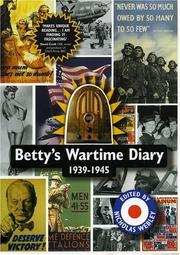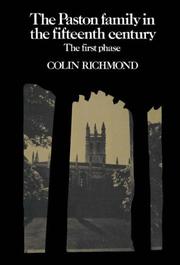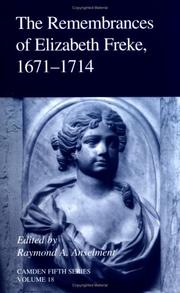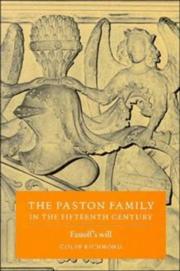| Listing 1 - 10 of 11 | << page >> |
Sort by
|
Book
ISBN: 1909686824 9781909686823 9781909686847 1909686840 9781909686816 1909686816 Year: 2015 Publisher: [Place of publication not identified]
Abstract | Keywords | Export | Availability | Bookmark
 Loading...
Loading...Choose an application
- Reference Manager
- EndNote
- RefWorks (Direct export to RefWorks)
England --- Norfolk (England) --- Norfolk --- County of Norfolk (England) --- History, Local.
Book
ISBN: 0714123102 Year: 1997 Publisher: London British Museum Press
Abstract | Keywords | Export | Availability | Bookmark
 Loading...
Loading...Choose an application
- Reference Manager
- EndNote
- RefWorks (Direct export to RefWorks)
Jewelry, Ancient --- -Jewelry, Ancient --- -Catalogs --- Norfolk (England) --- -Antiquities --- -Norfolk --- County of Norfolk (England) --- Antiquities --- Norfolk --- Antiquities.
Book
ISBN: 1787442985 1787443833 1783273305 Year: 2018 Publisher: Suffolk : Boydell & Brewer,
Abstract | Keywords | Export | Availability | Bookmark
 Loading...
Loading...Choose an application
- Reference Manager
- EndNote
- RefWorks (Direct export to RefWorks)
The Revd Benjamin Armstrong, for many years vicar of the market town of East Dereham, Norfolk, is best-known for what have been described as "one of England's greatest clerical diaries", eleven volumes spanning his whole adult life, between 1850 and 1888. This first full biography puts his story into the context of the period in which he lived: a time of turmoil in the church, with its conflict between high and low forms of service, and theological arguments, stirred up not least by controversies over Darwin's theories of creation. It also vividly portrays rural life at a time of great change, when society became more fluid, railways allowed the economy to grow and develop, and the vote was extended. We see this through the eyes of Armstrong himself, a fine example of the then "new-style" Church of England clergy who lived in their parishes, took more services than their predecessors, supported their schools and showed a genuine concern for the well-being of their parishioners. By the time he retired, church life in Dereham had been transformed, with congregations typically of 1,000 at each of the Sunday services. Armstrong also served on various Local Boards, as well as setting up the Literary Institute, the Rifle Volunteers and supporting musical and cultural events. He also had a full social life; his friends included prominent townspeople and the local clergy, gentry and aristocracy -- and there are incisive pen portraits of many of his associates and their eccentricities. These activities are set against the background of his family life, with its moments of tragedy and worry, including the death of a young child and the elopement of another. Dr Susanna Wade Martins is an Honorary Research Fellow in the School of History at the University of East Anglia. Her previous publications include The East Anglian Countryside: changing landscapes 1870-1950 with Tom Williamson (2008), Coke of Norfolk, 1754-1842 (2009) and The Conservation Movement in Norfolk - a history (2015).
Armstrong, Benjamin, --- Church of England --- Anglican Church --- Anglikanskai︠a︡ t︠s︡erkovʹ --- Ecclesia Anglicana --- Kirche von England --- United Church of England and Ireland --- Clergy --- Norfolk (England) --- Norfolk --- County of Norfolk (England) --- Church history --- HISTORY / Modern / 19th Century. --- Norfolk.
Book
ISBN: 9780197266656 0197266657 Year: 2020 Publisher: Oxford Oxford University Press
Abstract | Keywords | Export | Availability | Bookmark
 Loading...
Loading...Choose an application
- Reference Manager
- EndNote
- RefWorks (Direct export to RefWorks)
Pauper inventories were made by poor law officials to record the possessions that people on poor relief owned. These inventories have been known to exist for decades, yet they are notoriously difficult to find and have been under-utilised by generations of historians. For the first time, this book contains transcriptions of 230 pauper inventories from Norfolk. The sources are fully contextualised and indexed, alongside four comprehensive chapters which outline the source's importance and usefulness to readers. Pauper inventories are powerful documents which reveal new insights into the living conditions of the destitute and show that being poor did not necessarily equate to owning very little. The sources will be of use to economic, social and cultural historians who study a wide range of topics including consumption, material culture, production, everyday life, poverty and welfare.
Personal belongings --- Poor --- History --- Norfolk (England) --- Social conditions --- Disadvantaged, Economically --- Economically disadvantaged --- Impoverished people --- Low-income people --- Pauperism --- Poor, The --- Poor people --- Persons --- Social classes --- Poverty --- Belongings, Personal --- Bundles of personal belongings --- Effects, Personal --- Paraphernalia, Personal --- Personal effects --- Personal paraphernalia --- Personal possessions --- Possessions, Personal --- Economic conditions --- Norfolk --- County of Norfolk (England) --- Personal belongings. --- Poor. --- Social conditions. --- 1700-1899. --- England
Book
ISBN: 9781407357010 1407357018 Year: 2021 Publisher: Oxford, UK : BAR Publishing,
Abstract | Keywords | Export | Availability | Bookmark
 Loading...
Loading...Choose an application
- Reference Manager
- EndNote
- RefWorks (Direct export to RefWorks)
"The Late Iron Age in northern East Anglia ended with the Boudican rebellion in 60/61 CE, after which the people known to classical writers as the Iceni were subsumed into the Roman empire. This volume presents new research which tests the archaeological evidence for the Iceni as a defined group, through analysis of the region's distinctive material culture, particularly highlighting the impact of metal-detector finds on the available dataset for research. It evaluates the validity of the theory that the Iceni were slow to adopt Roman imports and luxury goods, either as a form of deliberate resistance or due to cultural conservatism following the failed revolt. The interpretive narrative of the Iceni as 'Other,' in both Classical and modern sources, is also investigated."--Back cover (page 4 of cover).
Excavations (Archaeology) --- Excavations (Archaeology). --- Iceni --- Norfolk (England) --- Romans --- Romans. --- Antiquities. --- Antiquities, Celtic. --- England --- Iron age --- Britons --- Ethnology --- Antiquities --- East Anglia (England) --- Norfolk --- County of Norfolk (England) --- Antiquities, Roman. --- Civilization --- Italic peoples --- Latini (Italic people) --- Archaeological digs --- Archaeological excavations --- Digs (Archaeology) --- Excavation sites (Archaeology) --- Ruins --- Sites, Excavation (Archaeology) --- Archaeology --- Material culture. --- Jewelry.

ISBN: 1280233184 9786610233182 142372125X 1854184164 9781423721253 9781854184160 9781280233180 1854182218 Year: 2002 Publisher: London : Thorogood Publishing,
Abstract | Keywords | Export | Availability | Bookmark
 Loading...
Loading...Choose an application
- Reference Manager
- EndNote
- RefWorks (Direct export to RefWorks)
The diary of Betty Armitage, a theatrical dresser and seamstress who retired to Norfolk just before WWII. It looks at the events of the war - the Battle of Britain, the Blitz, privation and survival and the American forces ""invasion"" from a country perspective.
Armitage, Betty. --- World War, 1939-1945. --- World War, 1939-1945 --- Women dressmakers --- Regions & Countries - Europe --- History & Archaeology --- Great Britain --- History - General --- European War, 1939-1945 --- Second World War, 1939-1945 --- World War 2, 1939-1945 --- World War II, 1939-1945 --- World War Two, 1939-1945 --- WW II (World War, 1939-1945) --- WWII (World War, 1939-1945) --- History, Modern --- Seamstresses --- Dressmakers --- Armitage, Betty --- Norfolk (England) --- Social life and customs. --- Social life and customs --- Norfolk --- County of Norfolk (England)

ISBN: 0521385024 0521520274 0511560303 Year: 1990 Publisher: Cambridge New York Sydney Cambridge University Press
Abstract | Keywords | Export | Availability | Bookmark
 Loading...
Loading...Choose an application
- Reference Manager
- EndNote
- RefWorks (Direct export to RefWorks)
The Pastons of Paston, Norfolk, are famous for the collection of letters and papers which bear their name. In particular 'the Paston Letters' have been well known since the time of Horace Walpole, although until now they have never been used systematically by historians of fifteenth-century England: they are both immensely attractive to read and fiendishly difficult to use as source material from which to write history. This volume describes, in lively and original style, the beginnings of the family's gentility and sets out some of the major themes of their history between 1400 and 1500. Many of the themes are common to all gentry families of the later Middle Ages, a period critical in the formation of the English polity. It might also be said that the Pastons epitomize a class which since the later Middle Ages has dominated the English state, English society and English culture.
English letters --- Letter writing --- Paston letters. --- History and criticism. --- History --- Paston family --- Correspondence. --- England --- Great Britain --- Norfolk (England) --- Social life and customs --- Social life and customs. --- 1066-1485 --- Lancaster and York, 1399-1485 --- Henry VII, 1485-1509 --- Correspondence --- England - Social life and customs - Medieval period, 1066-1485. --- Great Britain - History - Lancaster and York, 1399-1485. --- Great Britain - History - Henry VII, 1485-1509. --- Norfolk (England) - Social life and customs. --- Paston family - Correspondence. --- Arts and Humanities --- Paston letters, A.D. 1422-1509 --- Paston letters and papers of the fifteenth century --- Norfolk --- County of Norfolk (England)

ISBN: 0521808081 9780521808088 Year: 2001 Volume: 18 Publisher: London: Cambridge university press,
Abstract | Keywords | Export | Availability | Bookmark
 Loading...
Loading...Choose an application
- Reference Manager
- EndNote
- RefWorks (Direct export to RefWorks)
Women --- Femmes --- Biography --- History --- Biographie --- Histoire --- Freke, Elizabeth. --- England --- Angleterre --- Social conditions --- Conditions sociales --- Terminal care --- Gentry --- Married women --- Widows --- Human females --- Wimmin --- Woman --- Womon --- Womyn --- Females --- Human beings --- Femininity --- Marital status --- End-of-life care --- Terminally ill --- Care of the sick --- Critical care medicine --- Death --- Married people --- Wives --- Gentry, Landed --- Landed gentry --- Squires --- Upper class --- Care and treatment --- Medical care --- Freke, Elizabeth, --- Norfolk (England) --- Norfolk --- County of Norfolk (England) --- Social life and customs --- Freke, Elizabeth --- 18th century --- Sources --- Terminal care - England - Norfolk - History - 18th century - Sources. --- Gentry - England - Norfolk - History - Sources. --- Women - England - Norfolk - History - Sources. --- Married women - England - Norfolk - Biography. --- Widows - England - Norfolk - Biography. --- Veuves --- 18e siecle

ISBN: 0521562384 0585039747 9780585039749 0511582161 9780511582165 0511000960 9780511000966 9780521562386 9780521520287 0521520282 Year: 1996 Publisher: Cambridge : Cambridge University Press,
Abstract | Keywords | Export | Availability | Bookmark
 Loading...
Loading...Choose an application
- Reference Manager
- EndNote
- RefWorks (Direct export to RefWorks)
The Paston family have long been famous for the large collection of letters and papers which bear their name. However, only recently have the 'Paston Letters' been used systematically by historians of fifteenth-century England: they are both attractive to read and fiendishly difficult to use as source material for the historian. This, the second volume in Colin Richmond's individual and compelling study of the Pastons, describes the bitter disputes over the will of Sir John Fastolf (d. 1459) which dogged the family for many years, and which hold a wider significance for the law, English country society, and the complex politics of the fifteenth century. Professor Richmond uses his mastery of the Paston documents to illuminate many obscurities surrounding the will, and at the same time creates an insightful and sympathetic picture of this fascinating, often troubled family.
English letters --- Letter writing --- Soldiers --- 942.04 --- 942.04 Geschiedenis van Engeland--(1399-1485) --- Geschiedenis van Engeland--(1399-1485) --- Armed Forces personnel --- Members of the Armed Forces --- Military personnel --- Military service members --- Service members --- Servicemen, Military --- Armed Forces --- History and criticism --- History --- Biography&delete& --- Sources --- Fastolf, John, --- Paston family --- Will. --- Correspondence. --- Paston letters. --- Paston letters, A.D. 1422-1509 --- Paston letters and papers of the fifteenth century --- England --- Norfolk (England) --- Norfolk --- County of Norfolk (England) --- Angleterre --- Anglii︠a︡ --- Inghilterra --- Engeland --- Inglaterra --- Anglija --- England and Wales --- Social life and customs --- Sources. --- History and criticism. --- Biography --- Arts and Humanities
Book
ISBN: 0773411224 9780773411227 9780773439153 0773439153 Year: 2011 Publisher: Lewiston : The Edwin Mellen Press,
Abstract | Keywords | Export | Availability | Bookmark
 Loading...
Loading...Choose an application
- Reference Manager
- EndNote
- RefWorks (Direct export to RefWorks)
This text offers new insight into the political unrest in East Britain between 1646 and 1650. New information is provided regarding the "Winter Insurrection" of 1650. New analysis connects these events to future uprisings in Britain and the United States.
Government, Resistance to -- England -- Norfolk -- History. --- Insurgency -- England -- Norfolk -- History -- 17th century. --- Norfolk (England) -- Social conditions -- 17th century. --- Political violence -- England -- Norfolk -- History -- 17th century. --- Riots -- England -- Norfolk -- History -- 17th century. --- Government, Resistance to --- Riots --- Insurgency --- Political violence --- Regions & Countries - Europe --- History & Archaeology --- Great Britain --- Violence --- Political crimes and offenses --- Terrorism --- Insurgent attacks --- Rebellions --- Civil war --- Revolutions --- Internal security --- Civil disorders --- Assembly, Right of --- History --- Offenses against public safety --- Crowds --- Demonstrations --- Mobs --- Street fighting (Military science) --- Civil resistance --- Non-resistance to government --- Resistance to government --- Political science --- Nonviolence --- Norfolk (England) --- Social conditions --- Norfolk --- County of Norfolk (England) --- Political resistance
| Listing 1 - 10 of 11 | << page >> |
Sort by
|

 Search
Search Feedback
Feedback About UniCat
About UniCat  Help
Help News
News